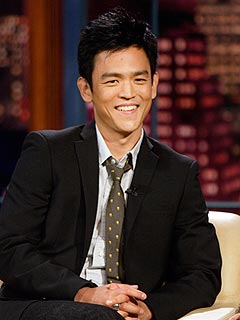BEIJING (Reuters) - North Korea has told its key ally, China, that it is prepared to stage one or even two more nuclear tests this year in an effort to force the United States into diplomatic talks, said a source with direct knowledge of the message.
Further tests could also be accompanied this year by another rocket launch, said the source, who has direct access to the top levels of government in both Beijing and Pyongyang.
North Korea conducted its third nuclear test on Tuesday, drawing global condemnation and a stern warning from the United States that it was a threat and a provocation.
"It's all ready. A fourth and fifth nuclear test and a rocket launch could be conducted soon, possibly this year," the source said, adding that the fourth nuclear test would be much larger than the third, at an equivalent of 10 kilotons of TNT.
The tests will be undertaken, the source said, unless Washington holds talks with North Korea and abandons its policy of what Pyongyang sees as attempts at regime change.
North Korea also reiterated its long-standing desire for the United States to sign a final peace agreement with it and establish diplomatic relations, he said. North Korea remains technically at war with both the United States and South Korea after the Korean war ended in 1953 with a truce.
In Washington, U.S. State Department spokeswoman Victoria Nuland urged North Korea to "refrain from additional provocative actions that would violate its international obligations" under three different sets of U.N. Security Council resolutions that prohibit nuclear and missile tests.
North Korea "is not going to achieve anything in terms of the health, welfare, safety, future of its own people by these kinds of continued provocative actions. It's just going to lead to more isolation," Nuland told reporters.
The Pentagon also weighed in, calling North Korea's missile and nuclear programs "a threat to U.S. national security and to international peace and security."
"The United States remains vigilant in the face of North Korean provocations and steadfast in our defense commitments to allies in the region," said Pentagon spokeswoman Major Catherine Wilkinson.
Initial estimates of this week's test from South Korea's military put its yield at the equivalent of 6-7 kilotons, although a final assessment of yield and what material was used in the explosion may be weeks away.
North Korea's latest test, its third since 2006, prompted warnings from Washington and others that more sanctions would be imposed on the isolated state. The U.N. Security Council has only just tightened sanctions on Pyongyang after it launched a long-range rocket in December.
Pyongyang is banned under U.N. sanctions from developing missile or nuclear technology after its 2006 and 2009 nuclear tests.
North Korea worked to ready its nuclear test site, about 100 km (60 miles) from its border with China, throughout last year, according to commercially available satellite imagery. The images show that it may have already prepared for at least one more test, beyond Tuesday's subterranean explosion.
"Based on satellite imagery that showed there were the same activities in two tunnels, they have one tunnel left after the latest test," said Kune Y. Suh, a nuclear engineering professor at Seoul National University in South Korea.
Analysis of satellite imagery released on Friday by specialist North Korea website 38North showed activity at a rocket site that appeared to indicate it was being prepared for a launch (http://38north.org/2013/02/tonghae021413/).
NORTH 'NOT AFRAID' OF SANCTIONS
President Barack Obama pledged after this week's nuclear test "to lead the world in taking firm action in response to these threats" and diplomats at the U.N. Security Council have already started discussing potential new sanctions.
North Korea has said the test was a reaction to "U.S. hostility" following its December rocket launch. Critics say the rocket launch was aimed at developing technology for an intercontinental ballistic missile.
"(North) Korea is not afraid of (further) sanctions," the source said. "It is confident agricultural and economic reforms will boost grain harvests this year, reducing its food reliance on China."
North Korea's isolated and small economy has few links with the outside world apart from China, its major trading partner and sole influential diplomatic ally.
China signed up for international sanctions against North Korea after the 2006 and 2009 nuclear tests and for a U.N. Security Council resolution passed in January to condemn the latest rocket launch. However, Beijing has stopped short of abandoning all support for Pyongyang.
Sanctions have so far not discouraged North Korea from pursuing its nuclear ambitions.
"It is like watching the same movie over and over again," said Lee Woo-young, a professor at Seoul's University of North Korean Studies. "The idea that stronger sanctions make North Korea stop developing nuclear programs isn't effective in my view."
The source with ties to Beijing and Pyongyang said China would again support U.N. sanctions. He declined to comment on what level of sanctions Beijing would be willing to endorse.
"When China supported U.N. sanctions ... (North) Korea angrily called China a puppet of the United States," he said. "There will be new sanctions which will be harsh. China is likely to agree to it," he said, without elaborating.
He said however that Beijing would not cut food and fuel supplies to North Korea, a measure it reportedly took after a previous nuclear test.
He said North Korea's actions were a distraction for China's leadership, which was concerned that the escalations could inflame public opinion in China and hasten military build-ups in the region.
The source said he saw little room for compromise under North Korea's youthful new leader, Kim Jong-un. The third Kim to rule North Korea is just 30 years old and took over from his father in December 2011.
He appears to have followed his father, Kim Jong-il, in the "military first" strategy that has pushed North Korea ever closer to a workable nuclear missile at the expense of economic development.
"He is much tougher than his father," the source said.
(Additional reporting by Arshad Mohammed and Phillip Stewart in WASHINGTON; Writing by David Chance; Editing by Raju Gopalakrishnan, David Brunnstrom and Jackie Frank)











